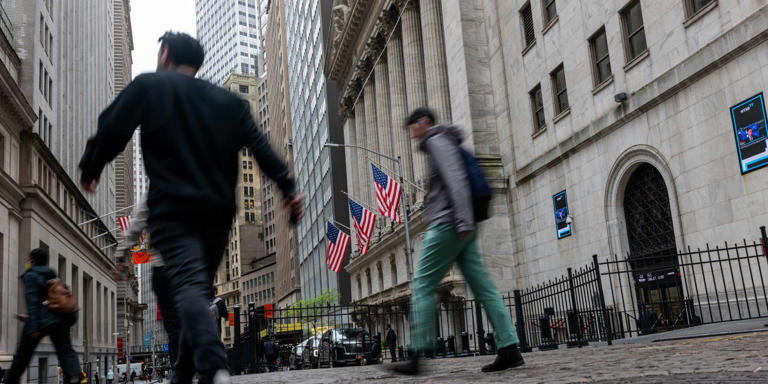The leading indicators for the U.S. economy fell in April for the second consecutive month, signaling “serious headwinds to growth,” according to the privately run Conference Board. The index of leading economic indicators, designed to predict future economic performance, dropped by 0.6% last month. This decline exceeded the expectations of economists polled by the Wall Street Journal, who had forecast a 0.3% decrease.
This recent downturn follows a brief rise in February, marking the first increase in two years and ending the third-longest stretch of consecutive declines in the index’s history. Historically, similar significant declines in the leading index have preceded recessions. However, the unique circumstances of the pandemic and its aftermath have disrupted traditional economic patterns, allowing the U.S. economy to maintain above-average growth rates despite these indicators.
The leading index’s decline in April was primarily driven by several factors, including weaker business orders, fewer building permits, and a decline in stock prices during the month, although stocks have since rebounded to fresh record highs.
The U.S. economy experienced a slowdown in the first quarter following robust growth in the latter half of 2023. This trend is expected to persist until inflation decreases and the Federal Reserve decides to cut interest rates. Despite these challenges, a recession is not anticipated in the near term. The labor market remains strong, characterized by steady hiring, low layoffs, and low unemployment, which supports consumer spending and overall economic growth.
Justyna Zabinska-La Monica, senior manager of business-cycle indicators at the Conference Board, noted that while the leading indicators no longer signal an imminent recession, they do point to significant growth challenges ahead. Factors such as elevated inflation, high interest rates, rising household debt, and depleted savings from the pandemic are expected to weigh on the U.S. economy throughout 2024.
Despite the concerning economic indicators, the stock market reacted positively, with the Dow Jones Industrial Average and S&P 500 both rising slightly in Friday trading.
The April decline in the leading indicators highlights ongoing economic challenges, including inflation and interest rate concerns, which are expected to persist into 2024. While a recession seems unlikely due to the strong labor market, the U.S. economy faces significant headwinds that could slow growth in the coming months. Investors and policymakers will need to closely monitor these indicators and adjust their strategies accordingly to navigate the uncertain economic landscape.
